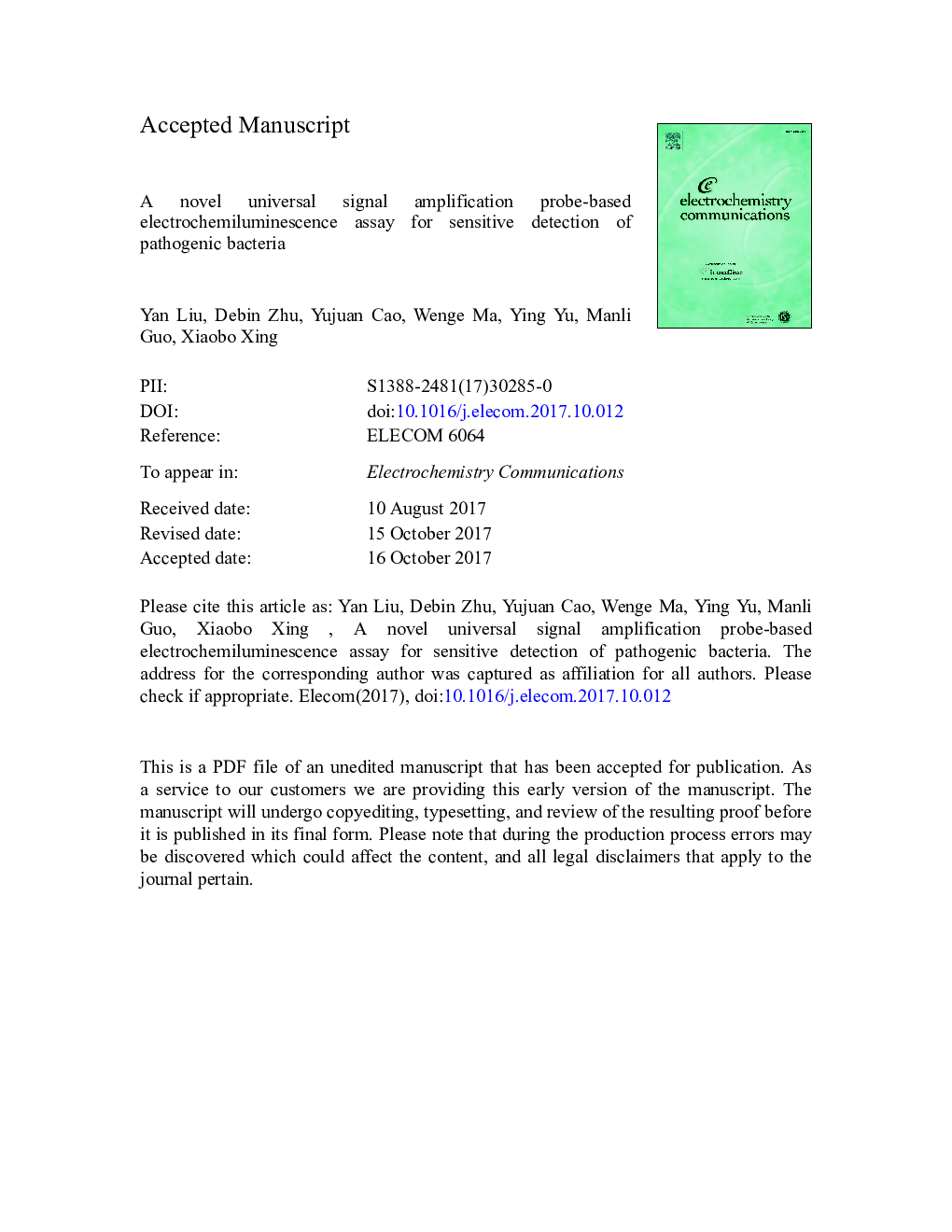| Article ID | Journal | Published Year | Pages | File Type |
|---|---|---|---|---|
| 6601067 | Electrochemistry Communications | 2017 | 16 Pages |
Abstract
A novel universal signal amplification (USA) probe-based electrochemiluminescence (ECL) assay for sensitive detection of pathogenic bacteria was developed. In this assay, a series of capture probes (CPs) containing two distinctly functional parts were carefully designed. One part was used to specifically recognize different regions of single-stranded (ss) target DNA in order to improve the accuracy and specificity of the assay. The other part was used to hybridize with USA probe so as to amplify the ECL signal and thus improve the sensitivity of the assay. Furthermore, the USA probe can be used to detect different target genes due to its universal sequence so as to reduce the cost of the assay. The method was applied to detect Staphylococcus aureus (S. aureus). The experimental results showed that the detection limit was 100Â fM of asymmetric PCR products. The method holds great promise in pathogenic bacteria detection due to its accuracy, specificity, sensitivity and low-cost.
Keywords
Related Topics
Physical Sciences and Engineering
Chemical Engineering
Chemical Engineering (General)
Authors
Yan Liu, Debin Zhu, Yujuan Cao, Wenge Ma, Ying Yu, Manli Guo, Xiaobo Xing,
